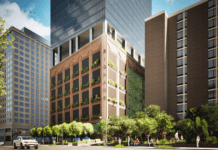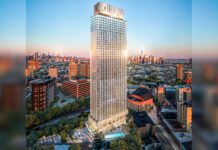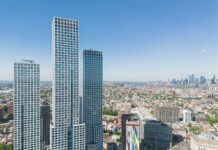
A once proud but deteriorating industrial complex in Mercer County is officially meeting the wrecking ball and will be replaced with a warehouse facility and flex spaces hoping to spark some modern-day innovation.
KRE Group recently joined Ewing Township Mayor Bert H. Steinmann and other dignitaries to begin demolition of the decommissioned United States Naval Air Propulsion Center. The property, situated next to the Trenton–Mercer Airport, was operated by the U.S. Navy as a vital jet engine test facility when it opened in 1951.
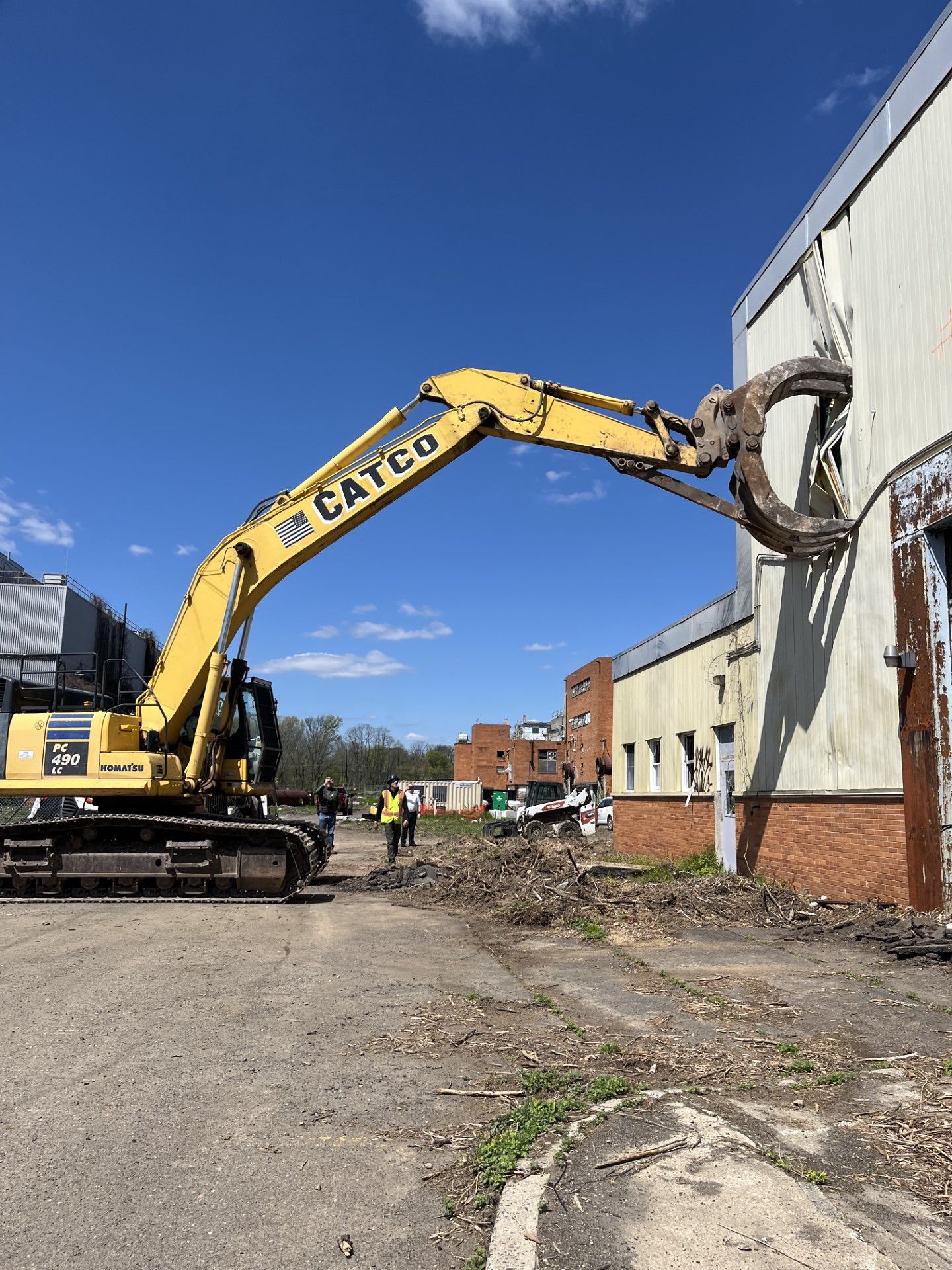
Going back even further, the facility played a crucial role in bolstering America’s military capabilities back when it was requisitioned by the government during World War II in 1941. The plant ended up producing the Avenger, which served as the U.S. Navy’s primary torpedo bomber.
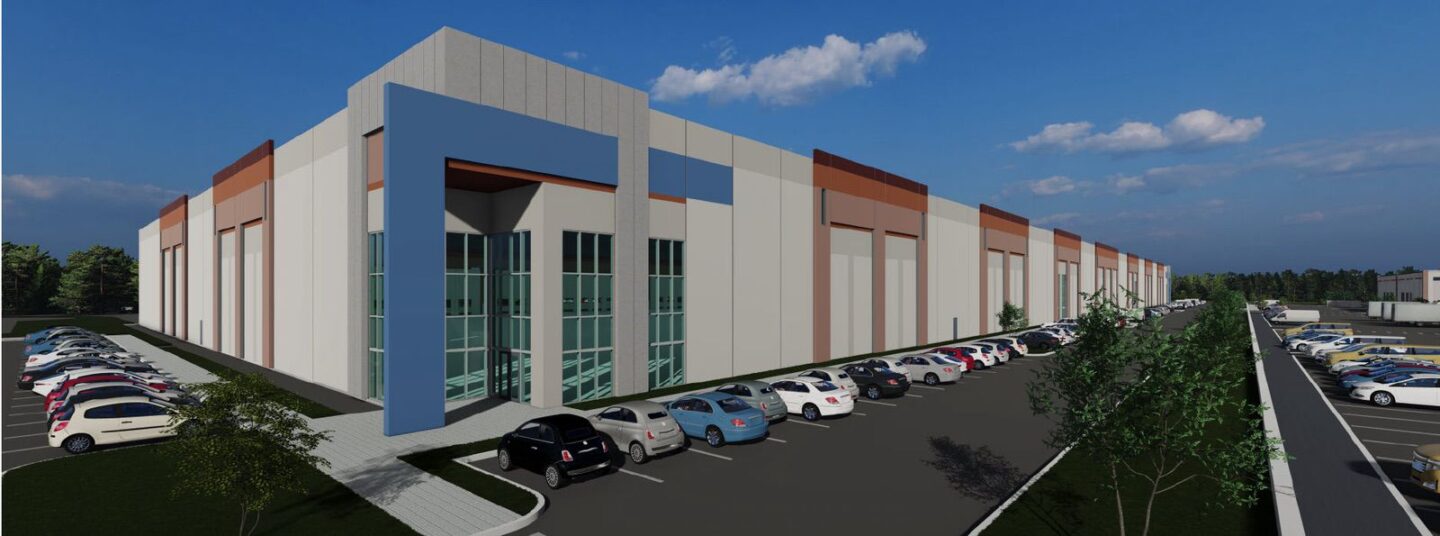
Since closing in 1997, the property has been sold off in hopes of revitalization. The plans from redeveloper KRE Group call for the approximately 26.28 acres to house four new buildings consisting of a single-story warehouse spanning 285,152 square feet and three standalone flex space structures each measuring 20,000 square feet.
Extensive site improvements including a new stormwater management infrastructure, landscaping and lighting, a new NJ Transit bus stop, surface parking, a landscaped walking trail, roadway improvements to Parkway Avenue, and the addition of a traffic circle at Parkway Avenue and Jack Stephan Way are built into the redevelopment plans.
“We are thrilled to embark on this revitalization effort and are proud to be the ones capable of moving this important project forward after so many years of inactivity,” said Jonathan Kushner, President of KRE Group. “This redevelopment initiative, long championed by Mayor Steinmann, will complement the progress already made within the Redevelopment Zone while laying the groundwork for an innovative future.”
The redevelopment of the former Naval Air Propulsion Center is the second and final phase of the Township’s Parkway Avenue Redevelopment Plan, which was first adopted in 2013. The endeavor follows the successful transformation of the former General Motors factory into the Ewing Town Center, which offers a mix of retail and residential uses.
